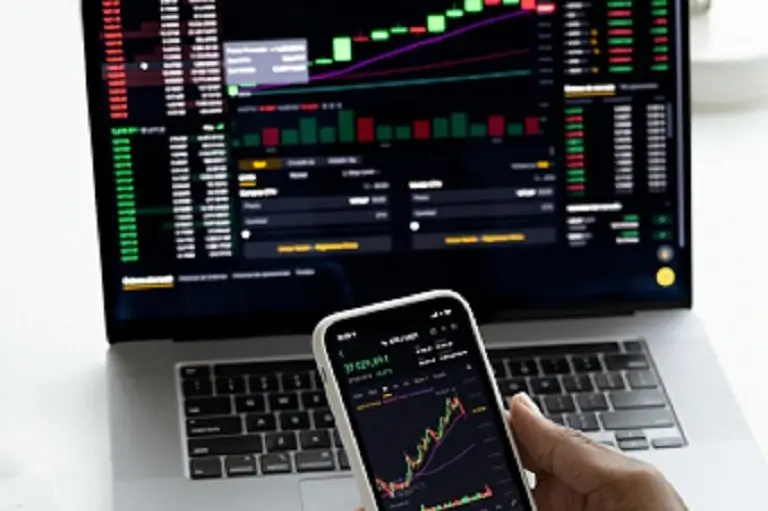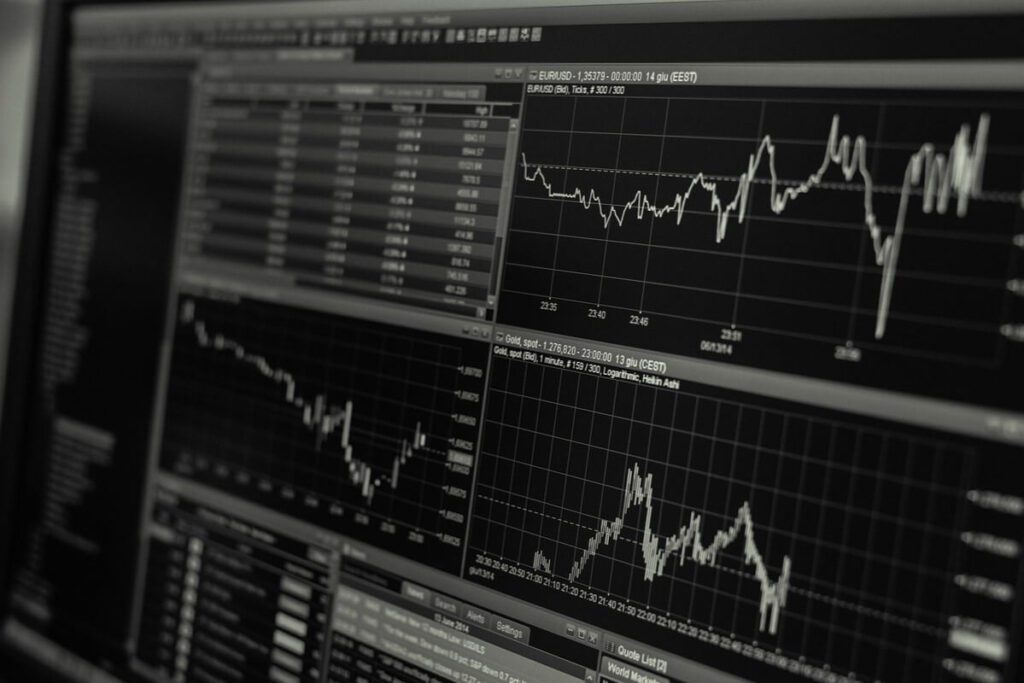Forex tracking, the process of monitoring and interpreting currency exchange rates, is a vital skill for traders seeking to make informed decisions and capitalize on market opportunities.
In the dynamic world of forex trading, success often hinges on the ability to track and analyze market movements effectively.
In this article, we’ll delve into the strategies and insights that can empower traders to unlock the full potential of forex tracking.
Understanding Forex Tracking
Forex tracking involves monitoring the price movements of currency pairs in real-time or over specific time frames.
Traders use various tools and techniques to track forex markets, including technical analysis, fundamental analysis, and sentiment analysis.
By tracking price movements, traders aim to identify trends, patterns, and potential entry or exit points for trades.
Strategies for Effective Forex Tracking
- Utilize Technical Analysis: Technical analysis involves studying historical price data and using indicators to forecast future price movements. Traders can use tools such as moving averages, Bollinger Bands, and Relative Strength Index (RSI) to identify trends and potential reversal points.
- Stay Informed with Fundamental Analysis: Fundamental analysis involves analyzing economic indicators, geopolitical events, and central bank policies to understand the underlying factors driving currency movements. Traders should stay updated on economic calendars and news releases to anticipate market reactions.
- Monitor Market Sentiment: Market sentiment refers to the overall attitude of traders towards a particular currency pair. Traders can gauge sentiment through tools like the Commitment of Traders (COT) report, which provides insights into the positions of large institutional traders. Additionally, sentiment analysis tools track social media and news sentiment to identify market trends.
- Implement Risk Management Strategies: Risk management is crucial in forex trading to protect capital and minimize losses. Traders should use stop-loss orders to limit potential losses on trades and maintain a consistent risk-reward ratio. Additionally, diversification and position sizing strategies can help spread risk across different currency pairs.
- Utilize Technology: Take advantage of trading platforms and software that offer advanced charting tools, customizable indicators, and automated trading algorithms. These technologies can streamline the forex tracking process and provide traders with real-time insights and analysis.
Insights for Success
- Patience and Discipline: Successful forex trading requires patience and discipline. Avoid impulsive decisions based on emotions and stick to your trading plan. Set realistic goals and be prepared to adapt to changing market conditions.
- Continuous Learning: Forex markets are constantly evolving, so it’s essential to stay updated on new strategies, tools, and market trends. Invest time in learning from reputable sources, attending webinars, and networking with other traders to expand your knowledge and skills.
- Backtesting and Analysis: Before implementing a new trading strategy, conduct thorough backtesting and analysis to assess its effectiveness. Use historical data to simulate trades and evaluate performance metrics such as win rate, risk-reward ratio, and maximum drawdown.
Advanced Techniques for Forex Tracking
While the strategies mentioned above provide a solid foundation for forex tracking, seasoned traders often employ advanced techniques to gain an edge in the market.
Let’s explore some additional methods that can enhance your tracking capabilities:
Price Action Analysis: Price action analysis involves studying the raw price movement of currency pairs without relying on indicators.
By observing candlestick patterns, support and resistance levels, and chart formations, traders can gain insights into market sentiment and potential price movements.
Intermarket Analysis: Intermarket analysis examines the relationships between different asset classes, such as currencies, stocks, bonds, and commodities.
By analyzing correlations and divergences between these markets, traders can identify trends and anticipate market shifts.
Seasonal Patterns: Some currency pairs exhibit seasonal patterns based on factors like economic cycles, geopolitical events, or weather conditions.
By studying historical data, traders can identify recurring patterns and adjust their trading strategies accordingly.
Algorithmic Trading: Algorithmic trading, also known as automated trading, involves using computer algorithms to execute trades based on predefined criteria.
Traders can develop custom algorithms or use pre-built trading robots to automate their forex tracking and execution process.
Machine Learning and AI: Machine learning and artificial intelligence (AI) technologies are increasingly being used in forex trading to analyze large datasets and identify complex patterns.
These advanced tools can enhance forex tracking by providing predictive insights and adaptive trading strategies.
Risk Management and Psychology
In addition to advanced tracking techniques, it’s essential to focus on risk management and psychology to maintain long-term success in forex trading:
- Emotional Control: Emotions such as fear, greed, and overconfidence can cloud judgment and lead to impulsive trading decisions. Practicing emotional control and maintaining a disciplined mindset are critical for executing trading plans effectively.
- Position Sizing: Proper position sizing ensures that traders risk an appropriate amount of capital on each trade relative to their account size and risk tolerance. By implementing position sizing strategies such as the Kelly Criterion or fixed fractional method, traders can manage risk more effectively.
- Adaptability: Markets are constantly changing, and successful traders must adapt their strategies accordingly. Stay flexible and open-minded, and be willing to adjust your approach based on evolving market conditions and new information.
- Continuous Evaluation: Regularly review your trading performance and identify areas for improvement. Keep a trading journal to document your trades, analyze your results, and learn from both your successes and mistakes.
Leveraging Technology for Enhanced Forex Tracking
In the digital age, technology plays a pivotal role in forex tracking, offering traders access to a wealth of tools and resources to streamline their analysis process:
Data Analytics Platforms: Data analytics platforms aggregate vast amounts of market data and provide sophisticated analytics tools to help traders identify patterns, trends, and correlations.
These platforms leverage machine learning algorithms to analyze data in real-time and generate actionable insights.
Artificial Intelligence (AI) Solutions: AI-powered trading solutions utilize advanced algorithms to analyze market data, identify trading opportunities, and execute trades with precision.
These systems can adapt to changing market conditions and optimize trading strategies based on historical data and market dynamics.
Cloud-Based Trading Platforms: Cloud-based trading platforms offer traders the flexibility to access their trading accounts and analysis tools from any device with an internet connection.
These platforms provide real-time market data, customizable charting tools, and seamless integration with trading algorithms.
Social Trading Networks: Social trading networks enable traders to connect with other traders, share insights, and replicate the trades of experienced investors.
These networks facilitate collaboration and knowledge-sharing, allowing traders to benefit from collective intelligence and diversify their trading strategies.
Mobile Trading Apps: Mobile trading apps empower traders to monitor markets, execute trades, and access analysis tools on the go.
With intuitive interfaces and real-time notifications, these apps provide convenience and flexibility for traders who need to stay connected to the market at all times.
The Importance of Continuous Education
In the fast-paced world of forex trading, staying ahead of the curve requires a commitment to continuous education and skill development:
Professional Development: Attend seminars, webinars, and workshops hosted by industry experts to expand your knowledge of forex trading strategies, market dynamics, and risk management techniques.
Online Courses and Tutorials: Enroll in online courses and tutorials offered by reputable trading academies and educational platforms.
These resources cover a wide range of topics, from basic concepts to advanced trading techniques, and allow you to learn at your own pace.
Trading Communities: Join online trading communities, forums, and social media groups to connect with fellow traders, share experiences, and learn from each other’s successes and failures.
Engaging with a supportive community can provide valuable insights and help you stay motivated on your trading journey.
Practice and Simulation: Use demo accounts and trading simulators to practice your trading skills and test new strategies in a risk-free environment.
These tools allow you to gain hands-on experience without risking real capital and help you refine your approach before trading with real money.
Conclusion
In conclusion, unlocking the power of forex tracking requires a multifaceted approach that combines technical analysis, advanced techniques, risk management, and continuous education.
By leveraging the latest technology, adopting a disciplined mindset, and prioritizing ongoing learning and improvement, traders can enhance their ability to interpret market movements, identify profitable opportunities, and navigate the complexities of the forex market with confidence.
Whether you’re a novice trader just starting out or an experienced investor looking to refine your skills, incorporating these strategies and insights into your trading routine can help you achieve greater success and profitability in the dynamic world of forex trading.
Remember, success in forex trading is not just about making profits; it’s about mastering the art of disciplined decision-making, managing risk effectively, and continuously evolving as a trader.



